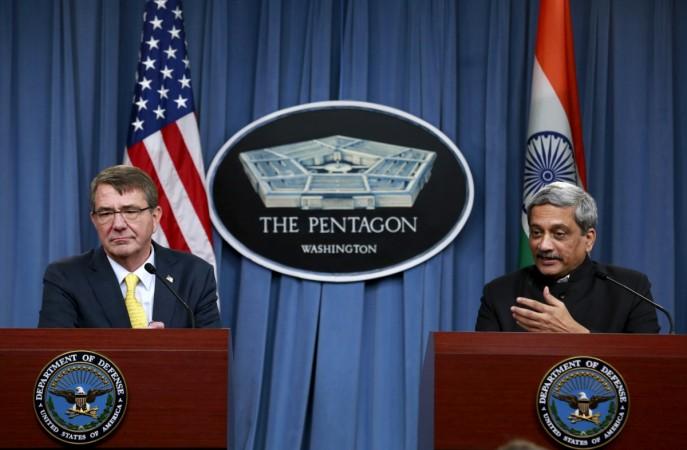
India and the United States are closing in on an agreement to share military logistics after 12 years of talks, officials said, a sign of strengthening defence ties between the countries as China becomes increasingly assertive.
The United States has emerged as India's top arms source after years of dominance by Russia, and holds more joint exercises with it than any other country.
It is in talks with New Delhi to help build its largest aircraft carrier in the biggest military collaboration to date, a move that will bolster the Indian navy's strength as China expands its reach in the Indian Ocean.
After years of foot-dragging by previous governments over fears that the logistics agreement would draw India into a binding commitment to support the United States in war, Prime Minister Narendra Modi's administration has signalled a desire to move ahead with the Logistics Support Agreement (LSA).
That would allow the two militaries to use each other's land, air and naval bases for resupplies, repair and rest, officials said.
Admiral Harry Harris, head of the US Navy's Pacific Command, said the two sides were working on the LSA, another agreement called the CISMOA for secure communications when the militaries operate together, and a third on exchange of topographical, nautical, and aeronautical data.
"We have not gotten to the point of signing them with India, but I think we're close," Harris, due in India this week, told the US House Armed Services Committee on Wednesday.
The progress comes as the countries consider joint maritime patrols that a US official said could include the South China Sea, where China is locked in a territorial dispute with Vietnam, the Philippines and Taiwan among others.
Both sides, though, said there were no immediate plans for such patrols, which drew strong condemnation from Beijing.
An Indian government official said the main impediment to signing the LSA had been cleared, after Washington gave an assurance that New Delhi was not bound by it if the U.S. went to war with a friendly country or undertook any other unilateral action that New Delhi did not support.
"It has been clarified that it will be done on a case-to-case basis; it's not automatic that either side will get access to facilities in the case of war," the official familiar with the negotiations said.
India's previous center-left government was worried the agreements would undermine India's strategic autonomy and that it would draw it into an undeclared military alliance with the United States.
Concerns linger over the proposed communications agreement, with some branches of the military including the air force fearing it would allow the United States to access their communications network.
US officials said they hoped that once the logistics agreement was signed, the others would follow.
A US defence industry source engaged in business in India said there were expectations the LSA could be sealed by the time US Defence Secretary Ash Carter visited New Delhi in April.
The source said Modi's office was directly involved in the matter and actively considering the agreements as a key for enhanced cooperation.
India has been alarmed by Chinese naval forays into the Indian Ocean and its involvement in maritime infrastructure on island nations that it traditionally considered its back yard.
It has moved to shore up naval forces and build defence ties with Japan and Vietnam, besides the United States.
"There is growing convergence between Obama's Asia pivot and Modi's Act East policy," said Saroj Bishoyi, an expert on the proposed India-US collaboration at the government-funded Institute for Defence Studies and Analyses in New Delhi.
"The LSA currently appears to be a doable agreement."

















